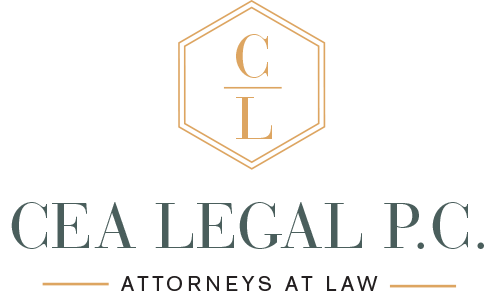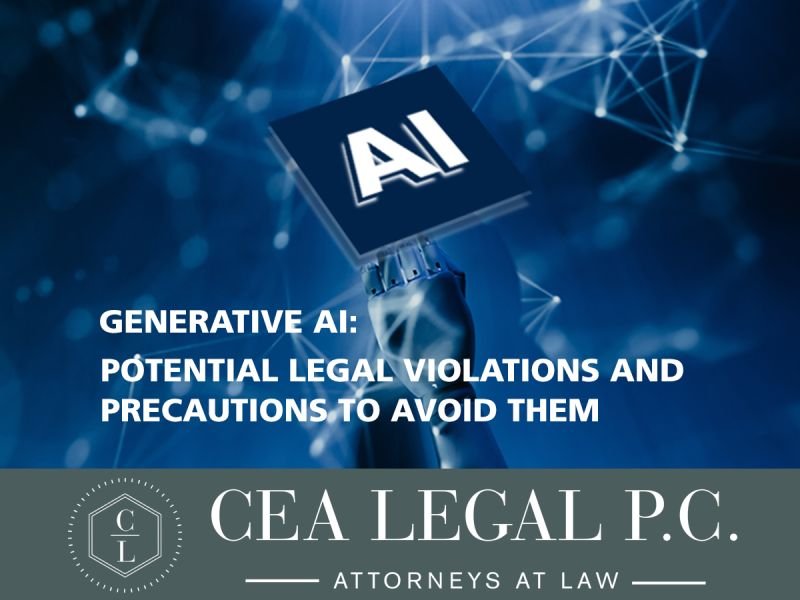Generative Ai: Potential Legal Violations And Precautions To Avoid Them
Generative AI is a type of Artificial Intelligence (AI) that focuses on creating new data rather than recognizing patterns in existing data. This type of AI uses deep learning algorithms to generate content such as images, videos, audio, text, and other kinds of media based on certain parameters or conditions. Generative AI has the potential to create unique content from scratch without any external input and can be used in various applications such as facial recognition, natural language processing (NLP), image generation, virtual personal assistants, and many more. The possibilities are endless when it comes to using generative AI for creative purposes. Generative AI technology is still relatively new but is quickly becoming an invaluable tool for businesses seeking to develop innovative services and products.
Generative AI can have serious legal implications if used improperly. AI-generated works, like generative music and art, are protected by copyright law in most countries. It is important for users to understand their rights and responsibilities when utilizing generative AI technologies, such as seeking out proper licensing or following any restrictions on what the works can be used for.
Generative AI can introduce a range of copyright violations and infringements that differ from more traditional forms of intellectual property. For example, generative AI models could use data without permission to create new works with similar content. Additionally, generative AI models can quickly produce high-quality copies of existing copyrighted content which can be difficult to distinguish from the original works due to their close resemblance. There have even been cases where generative AI models have created entire songs and movies without permission or attribution which violates both the copyright protections afforded by Creative Commons licenses as well as those provided by civil law. As technology advances, it is important for creators and businesses to stay aware of these risks when utilizing generative AI in their workflows.
As such, organizations and individuals should take steps to ensure that their use of such technologies does not infringe upon the rights of others. This includes avoiding the use of existing material without obtaining permission from its owner as well as making sure that all data used in the generative AI system is properly sourced and attributed. Additionally, it is recommended to include appropriate disclaimers or notices when publishing generated content. By taking these steps, users can help protect themselves against potential copyright violations and enjoy the benefits of using generative AI with confidence.
Additionally, privacy laws may become a factor when using generative AI as it uses data sets to generate new content which could contain private information that could lead to lawsuits if misused or shared without consent. For example, a company may use generative AI to create personalized content for its customers without obtaining consent from them first. This violates data protection regulations such as the General Data Protection Regulation (GDPR). Additionally, companies may collect biometric data from users without their knowledge or consent and use it to generate virtual models of people without their permission. This also constitutes a violation of privacy laws. Moreover, if a company shares or sells user data without their consent, this is considered an infringement of privacy rights and could lead to legal action. It is important for companies to be aware of the potential privacy law violations associated with generative AI and take steps to ensure that their algorithms are designed, developed, and maintained in compliance with data privacy regulations. This includes obtaining consent from users before collecting their data, implementing appropriate security protocols when handling user data, and ensuring that any third-party vendors used adhere to data privacy best practices. Additionally, organizations should have a clear policy about how they use generative AI and what measures are taken to protect user privacy. By following these guidelines and adhering to legal standards, companies can minimize the risk of violating privacy laws when using generative AI.
Furthermore, organizations need to ensure they are prepared to handle any potential ethical issues that may arise when using generative AI, such as bias in the data used to generate content or unintended harm caused by the generated works.
Ultimately, if utilized responsibly and with consideration of relevant legal and ethical issues, generative AI can be a powerful tool for creating innovative solutions.
This blog post has been created with a kind assistance of a generative AI tool! ;)
CONTACT OUR OFFICE TODAY:


